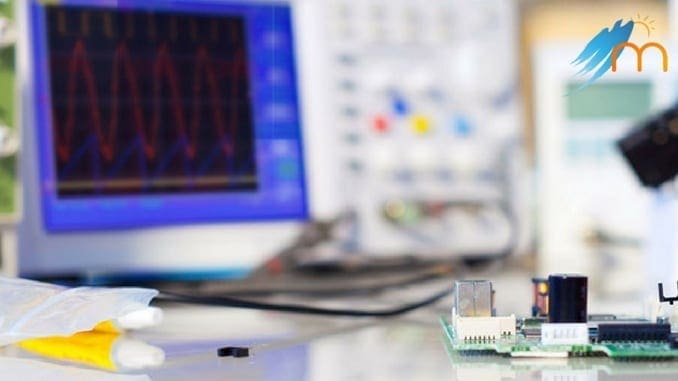
Varun Kamath | Guest Blogger
Recently having gone through a name and focus shift from Instrumentation & Control Engineering to Electronics & Instrumentation Engineering, a student who has graduated from this department can be expected to have had hands on knowledge on many aspects in the Electrical & Electronics Applied Sciences such as Sensor Technology, System Control, Signal Processing, Biomedical Instrumentation among others. This course is versatile, focused approach towards the applied science as it relies on heavy interplay among different aspects of electrical, electronics and control theory.
What is Electronics & Instrumentation Engineering
It is a specialized branch of Electrical & Electronics engineering. In the sense, the principle working and operation of various measuring instruments (digital and analog), study on measure of variables such as light, sound, temperature, flow, and the control of these variables to obtain a set output can be identified as the primary objective of this course. It would not be uncommon to draw comparisons between multiple branches that may seem related such as Biomedical, ECE and EEE.
Just to be clear, these branches do have subjects in common over the course. However, the primary objective of teaching the course vary. The primary objective can be seen as tending towards using electronics to manipulate and control physical variables which may vary in real time; in this case, Instrumentation which opens gateways to applications such as Optimization & Automation in general, as well as that of industries.
The cert iii instrumentation and Control Courses will give you skills and knowledge to select, install, set up, test, fault find, repair and maintain systems and devices for measurement and recording of physical/chemical phenomenon and related process control as well as being able to select, install, commission, fault find and maintenance of electrical and instrumentation equipment.
Electronics & Instrumentation in Manipal
The department has a state-of-the art LabView Academy made in collaboration with Industry partner National Instruments. The Laboratories present give insight in areas such as PC based Instrumentation, Microprocessors and Microcontrollers & Automation. As such, the faculty is friendly and supportive, and can easily be approached for any queries with regards to the course. As mentioned earlier, Instrumentation as a course being versatile, provides for Program Electives such as Artificial Intelligence, Control Process Systems, OOPS, Robotics, Industrial Instrumentation and so on. The department and their student have also been credited for the successful setup of a student club – ISOI (Instrument Society Of India)
After good deliberation in the 2017 Curriculum Conclave and on the suggestion of the Department’s students and faculty, the course from 2018 seems to be in wake of a drastic shift in focus towards more electronics and less of Control Theory as indicated by the name change. This focus shift is largely aimed at giving the graduates a more industry ready competency among their peers and reduce assertion on outdated or less important parts of the curriculum.
Scope
The subjects in the course have aspects of Electrical and Electronics, drawing inference that the scope may be similar to the ‘core’ branch, if not equal. The principles of controls systems allow for applications in the field of Industrial Automation with the goal of improving productivity, reliability, safety and optimization. The various challenges faced as an Instrumentation engineer include Integration of sensors with recorders, transmitters, display or control systems. They may also take on calibration, testing and maintenance of various systems. As the course is seen as versatile, it has applications that can widely vary.
Important Reference Books
- A.K.Sawhney – Electronics Measurements and Instrumentation
- Dr Roy Choudhury – Analog System Design
- Doyle, J.C, B.A. Francis and A.Tannenbaum – Feedback Control Theory
- K. Ogata – Discrete Time Control Systems

Be the first to comment